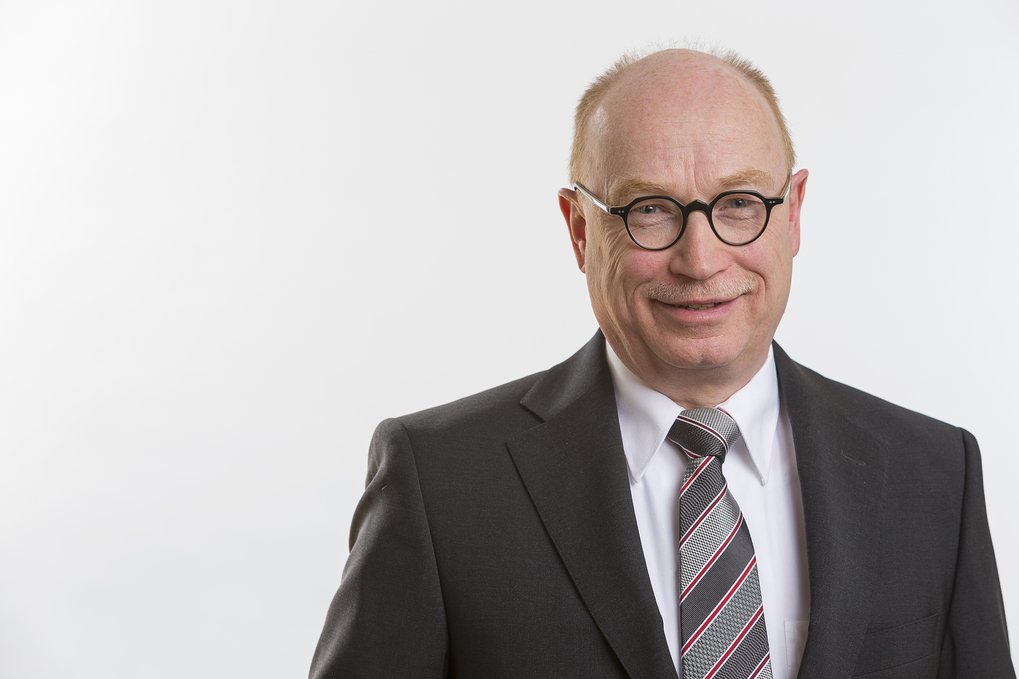The Max Planck Society’s Senate confirms the incumbent President for the new term of office beginning in June 2020
The Senate Committee, convened under the chairmanship of the non-scientific Vice President of the Max Planck Society, Andreas Barner (Boehringer Ingelheim), offered Martin Stratmann a second term of office in the light of the positive feedback from the Scientific Members. The Committee was of the opinion that continuity in this office was particularly important in view of the current challenges.

Martin Stratmann had agreed to stand for re-election: “If the Committee believes this is useful, I shall be happy to remain available for the office”. For personal reasons, however, he has reserved the right to resign from office prematurely, if necessary at the end of the 2023 Annual General Meeting. This is compatible with the Statutes of the Max Planck Society. The Senate did not see this as an obstacle and confirmed Martin Stratmann for a second term.
“The office of President offers a great opportunity to shape the Max Planck Society in cooperation with its panels. And the coming years will be particularly exciting,” said Stratmann. By 2030, two thirds of the Scientific Members will have retired. The Max Planck Society thus faces the challenge of identifying and recruiting new outstanding scientists. Stratmann had already established its own scouting officers to support the three scientific Sections in searching for appointments.
“With “MPG 2030″ we have initiated the process of self-renewal, which is important for the Max Planck Society,” said the President. If, within ten years, a large proportion of the directors will have an emeritus position at institutes and locations, as well as in certain research fields, a new scope for action will open up, which can be used for innovation.
“I am looking forward to accompanying this process even further in the coming years,” said Stratmann.
Martin Stratmann took over the office of President from Peter Gruss in 2014. He was previously Vice President of the Max Planck Society. His first term in office was devoted primarily to the support of early career researchers. For example, he introduced a nationwide funding contract for doctoral students (subject to social insurance contributions). Guidelines for doctoral and postdoctoral funding were established. With the Max Planck Schools, which will start as pilots in autumn 2019, Stratmann is setting new standards in the support of young researchers. His initiative for the Cyber Valley in Baden-Württemberg, Europe’s largest association of industry and science in the field of artificial intelligence, attracted particular attention.
Short CV of Martin Stratmann
Born on April 20, 1954 in Essen; study of chemistry at the Ruhr-Universität Bochum in 1974, supported by a scholarship of the Studienstiftung des Deutschen Volkes. Between 1979 to 1982, he obtained his doctorate at the Max-Planck-Institut für Eisenforschung in Düsseldorf with a thesis on “electrochemical investigations of phase transformations in rust layers”; two years as postdoctoral fellow at the Case Western Reserve University in Cleveland (USA); Head of a corrosion research group at the Max-Planck-Institut für Eisenforschung; from 1994 to 1999 holder of the chair for corrosion and surface technology at the Friedrich-Alexander-University Erlangen-Nuremberg; since 2000 Scientific Member and Director of the department “Interfacial Chemistry and Surface Technology” at the Max-Planck-Institut für Eisenforschung; from 2006 to 2008 chairperson of the Chemistry, Physics and Technology Section; from 2008 to 2014 Vice President of the Max Planck Society.







